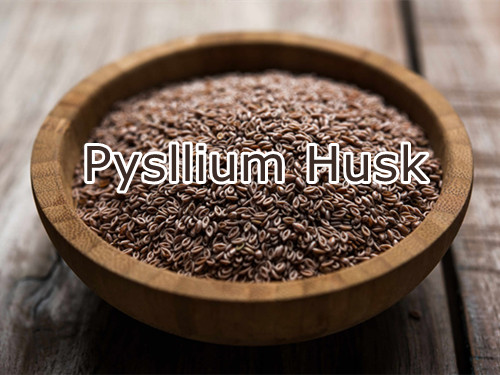Berberine is a natural alkaloid found in the roots, stems, and bark of many plants, These include Hydrastis canadensis, Berberis aquifolium, Berberis vulgaris, Coptis chinensis, and Berberis aristata. Berberis vulgaris, also known as common barberry, European barberry or simply barberry, is a red, sour berry rich in vitamin C that is processed into jam, Beverages, syrups, candies and other confectionery products, in addition, its leaves and fruits can also be used in the production of food flavorings and tea. The plant containing berberine has a long history of use in both Ayurveda and Chinese medicine and is also commonly used as a yellow dye. It is now considered a natural alternative to the diet drug Ozempic (sommarutide), an FDA-approved prescription drug for controlling blood sugar levels and weight in people with type 2 diabetes. The question is, can berberine really be used to lose weight?
Can berberine be used to lose weight?
Berberine has been used to improve infections, skin diseases, digestive disorders and other diseases, and its remarkable antibacterial and antipyretic effects are often used in the treatment of infectious diarrhea. In addition, in vitro and in vivo studies have shown that berberine has the potential to control and relieve type 2 diabetes, hyperlipidemia, and possibly have benefits for weight, body mass index (BMI), and waist circumference. For example, a 2008 study published in the journal Metabolism investigated the effects of berberine extract on obese subjects. The study found that berberine supplementation significantly reduced body weight and BMI compared to the placebo group. Therefore, berberine may be a promising natural compound for weight control and food cravings, leading to a reduction in calorie intake and potential weight loss.
For example, GNC recently launched a new weight loss supplement, Total Lean GlucaTrim, which can help users lose weight and lose weight, maintain muscle, while supporting healthy blood sugar and insulin levels. The product contains berberine. BrainMD announced the launch of Smart Metabolic Burn, an innovative supplement designed to optimize metabolism, support fat burning and promote sustainable weight control. The formulation is reported to contain berberine and oleyl glycolamide (OEA) components. Metavo™ brand Glucose Metabolism Support includes berberine in addition to its signature avocado bioactive compound, Avocatin B. Additionally, berberine supplements are available in gummy form, with turmeric and cinnamon added.
Possible mechanism of berberine for weight loss
Enhanced insulin sensitivity
Berberine has been found to enhance the body’s sensitivity to insulin, meaning it can help the body’s cells respond better to insulin. Berberine can help control blood sugar levels and reduce the risk of weight gain associated with insulin resistance and type 2 diabetes.
Inhibit the growth of adipocytes
Berberine is also thought to inhibit the growth of fat cells. The pharmacokinetics of berberine indicate that adipose tissue is the main target of berberine. At the same time, fat cells can secrete a variety of hormones, called adipokines, which affect the body’s energy metabolism. Many studies have been published on the mechanism of action of berberine on adipose tissue. The researchers found that berberine significantly inhibited the differentiation of mouse preadipocytes into adipocytes. This means that berberine can help reduce the amount of fat stored in the body.
Affect cholesterol metabolism
We know that cholesterol metabolism plays an important role in reducing lipid levels associated with obesity. Studies have shown that berberine can affect cholesterol metabolism. Wang et al. found that berberine reduces cellular cholesterol uptake and monolayer permeability by down-regulating the expression of acyl-Coenzyme A: cholesterol acyltransferase-2.
Regulation of intestinal flora
Studies have shown that berberine can enhance insulin resistance by regulating gut microbiota. Previous studies on berberine have provided favorable evidence for its regulation of intestinal flora. Studies in rats by Liu et al., and in mice by Tian et al., show that berberine alters the physiology and community composition of bacteria and increases the growth of beneficial bacteria such as bifidobacterium. It works by inhibiting LPS-induced TLR4/ TNF-α activation and the expression of BSH (bile saline hydrolysis enzyme (BSH) activity in probiotic strains is commonly associated with the ability to reduce serum cholesterol levels in patients with hypercholesterolemia).
With the growing interest in natural alternatives, berberine has gained a foothold in the mainstream health market. However, more research is needed to fully understand the effects of berberine on weight loss and its safety in humans. Despite promising findings, berberine’s role in weight loss isn’t fully understood, and long-term safety requires more research. It’s always best to consult a healthcare provider to ensure it’s safe and suitable for your individual needs before using berberine for weight loss.
Reference:
- Dandelion Extract: What It Is, Benefits, Uses and Side Effect - April 23, 2024
- Is Berberine Extract Help For Weight Loss? - April 11, 2024
- Why Is Pysllium Husk Powder A Popular Meal Replacement Ingredient? - April 3, 2024




